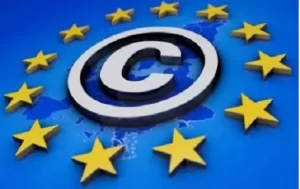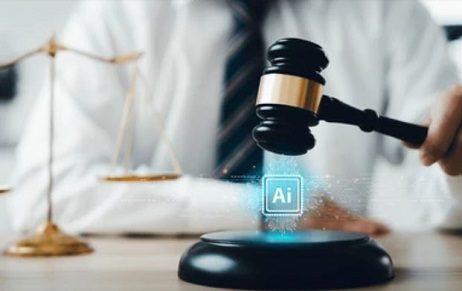Any successful café, restaurant, or retail establishment's environment is greatly influenced by its music. It…
Supreme Court And Copyright- One Step Forward Two Steps Back?
Putting an end to the long-conflicted opinion of the judiciary on the scope of Section 63 of the Copyright Act, 1957, the Supreme Court, on 20th of May 2022 in the case of M/s Knit Pro International vs The State of NCT of Delhi & Anr held that offences under the said section are cognizable and non-bailable. Which means that the police can register an FIR and arrest anyone against whom there is an allegation of (i) knowingly committing or abetting copyright infringement; (ii) knowingly violating any other rights granted under the Act, without the need of a warrant. Moreover, the person(s) arrested cannot be released from custody as a right and would have to apply for bail before a court of law under Section 437, Section 438 and Section 439 of the CrPC,1973.
Section 63 of the original Act contained provision of fine and imprisonment for one year for copyright infringement. However, in light of the increase in instants of piracy, the Act was amended in 1984 and the period of imprisonment was extended to a maximum of three years with the fine.
[Image Sources : Shutterstock]

Facts of the case-
The plaintiff registered an FIR against Anurag Sanghi (Respondent No. 2), for offences under Sections 51, 63, and 64 of the Copyright Act, read with Section 420 of the Indian Penal Code, 1860. In order to quash said FIR, an application was filed under Section 482 of the CrPC before the Delhi High Court and the application’s contention was restricted to the argument that the alleged offence was “non-cognizable” and “bailable”- in which case a complaint before the magistrate seeking permission to initiate an investigation should have been filed.
The Delhi High Court allowed the application and held that offences under Section 63 had to be non-cognizable in accordance with the Supreme Court’s decision in the case of Avinash Bhosale v Union of India and the judgement of a coordinate bench in Naresh Kumar (supra).
Judgement-
An appeal was made to the Supreme Court wherein it was held that the punishment prescribed under Section 63 extends up to “three years.” The Apex Court established that the offence becomes non-cognizable and bailable only in case the prescribed punishment is “less than three years” and even so the same would decidedly fall within Item-2 of Part-II of the First Schedule of the CrPC, and consequently be cognizable and non-bailable. The Court remarked: –
“5.3. Thus, for the offence under Section 63 of the Copyright Act, the punishment provided is imprisonment for a term which shall not be less than six months but which may extend to three years and with fine. Therefore, the maximum punishment which can be imposed would be three years. Therefore, the learned Magistrate may sentence the accused for a period of three years also. In that view of the matter considering Part II of the First Schedule of the Cr.P.C., if the offence is punishable with imprisonment for three years and onwards but not more than seven years the offence is a cognizable offence. Only in a case where the offence is punishable for imprisonment for less than three years or with fine only the offence can be said to be noncognizable. In view of the above clear position of law, the decision in the case of Rakesh Kumar Paul (supra) relied upon by learned counsel appearing on behalf of respondent no.2 shall not be applicable to the facts of the case on hand. The language of the provision in Part II of First Schedule is very clear and there is no ambiguity whatsoever.
Under the circumstances the High Court has committed a grave error in holding that the offence under Section 63 of the Copyright Act is a noncognizable offence. Thereby the High Court has committed a grave error in quashing and setting aside the criminal proceedings and the FIR. [..]
In view of the above discussion and for the reason stated above, it is observed and held that offence under Section 63 of the Copyright Act is a cognizable and nonbailable offence”
The problem-
Cognizable and Non-Bailable offences are classified as the ones punishment for which ranges from a period of 3 to 7 years. However, the range of punishment provided under Section 63 ranges between 6 months to 3 years. While delivering the judgement at hand, The Supreme Court has only taken the stipulated upper limit of 3 years into consideration.
The contention of punishments less than 3 years has not been paid the attention it was due as the latter has not been contemplated in offences that fall within Item 2 of CrPC, thereby relegating offences punishable for less than 3 years to those falling within the ambit of Item 2 of Part II of Schedule-1 of the CrPC, making them cognizable and non-bailable, which the legislature had an inclination against, as is clear from the provision of an Item 3. Contrary to the Trademarks Act, 1999, wherein the legislature has unambiguously provided for offences punishable for up to three years as being cognizable, no such mention has been made under the Copyright Act.
Besides, Sections 181 (deals with False statement on oath or affirmation to public servant) and 193 of the IPC (dealing with punishment for false evidence), provide for offences punishable for up to 3 years, yet non-cognizable and non-bailable. The Apex Court, in the author’s humble opinion, has not satisfactorily addressed the ambiguity surrounding the question of whether an offence punishable for a minimum of 3 years ought to be non-cognizable and non-bailable.
Analysing the dictum of the case, one is compelled to question whether the judicial opinion of law enforcement officers be the basis for curbing freedom of individuals without even judicially determining whether the use is actually infringing or permissible, and when there exists precedent permitting, under certain circumstances, even commercial use of copyright, how is one to expect, within reason, for the police to make the right call in all or a majority of cases in the very least?
Conclusion-
While there is much to be said about the criminalization of copyright infringement in itself, one must consider that this judgement of the Apex Court may very possibly open the floodgates of copyright industries penalising even legitimate users. While the court has made Section 63 cognizable and non-bailable, it has taken no step to a similar effect concerning Section 60 of the Copyright Act (groundless threat of legal proceedings). The contention that therefore arises is whether this judgement is in sync with Article 19 of the constitution or whether it is sub silentio and whilst not considering the issues raised hereinabove lacks substantial precedential value.
Author: Nandini Tyagi, student of BA.LLB. at Maharashtra National Law University, in case of any queries please contact/write back to us via email chhavi@khuranaandkhurana.com or at IIPRD.



